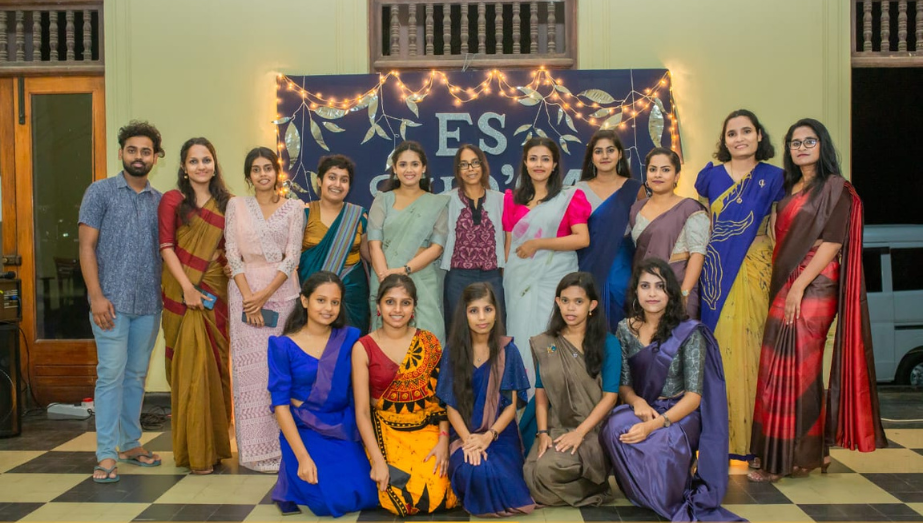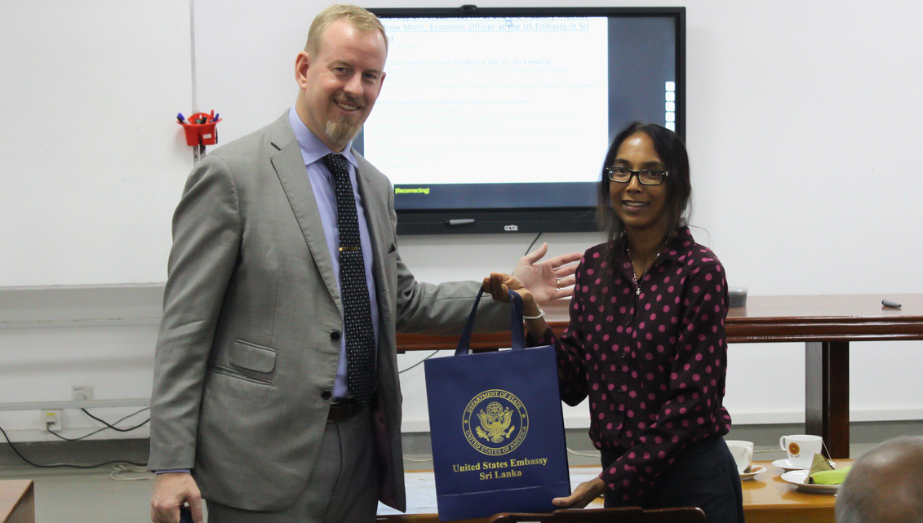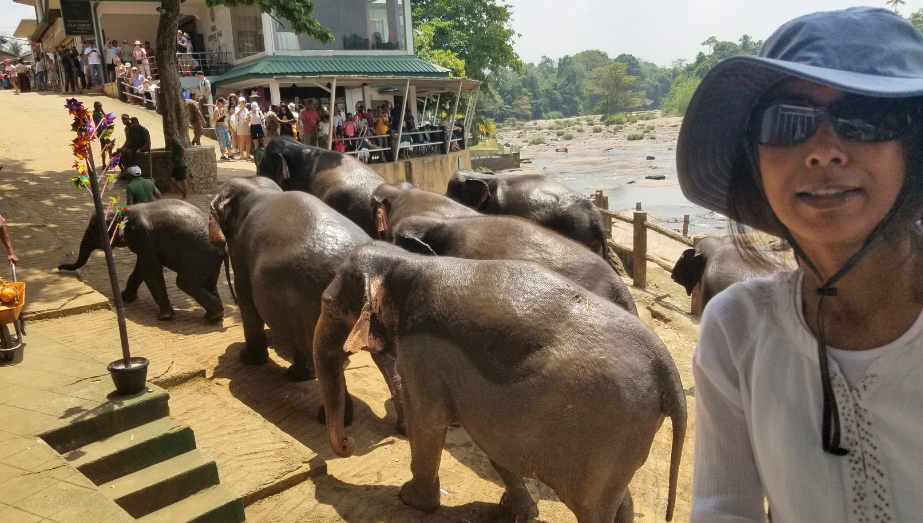Stepping off the plane in Sri Lanka in January 2024, ACC Geology Adjunct Professor Dr. Kusali Gamage expected to reconnect with her roots and exchange knowledge with her colleagues at the University of Peradeniya for the next six months. Little did she know that her Fulbright U.S. Scholar experience would include her playing a pivotal role in international collaboration and diplomacy.
“If there’s one lesson I’ve learned from my Fulbright journey, it’s the value of embracing uncertainties and finding joy in the present moment.”
Gamage was born and raised in Sri Lanka, leaving shortly after high school to live in the U.S. She completed her undergraduate and master’s degrees in geology at Bowling Green University, followed by a Ph.D. in geology at the University of Florida. Upon graduating, she worked as an Expedition Project Manager/Staff Scientist for the International Ocean Discovery Program (IODP) at Texas A&M University. She started teaching at ACC in 2011.
“I chose to return to Sri Lanka to reconnect with my roots and give back to the community that shaped me. I was eager to share the knowledge and experiences I’ve gained in the U.S. and also to learn from my esteemed colleagues in Sri Lanka.”
During her tenure with the University of Peradeniya’s Geology Department, she taught classes and facilitated two proposal writing workshops tailored for geology and physics majors.

Additionally, she had the unexpected opportunity to delve into research areas of “great personal interest” by mentoring and collaborating with two undergraduate students on their research projects focusing on water quality and microplastics in soils. The results from their water quality project have been submitted for publication, and their study on microplastics remains ongoing with promising developments.
But what Gamage describes as a standout moment is when she discovered Sri Lanka’s wealth of critical mineral resources, namely graphite.
“Given graphite’s pivotal role in electric vehicle (EV) batteries and its global demand, I recognized a potential for Sri Lanka to serve as a supplier to the U.S. market. Engaging in informal discussions with colleagues who are experts in mining and minerals at my host institution, this idea took shape.”
Upon sharing her insight with the executive director of the Sri Lanka Fulbright Commission, he facilitated a connection with the economic officer at the U.S. Embassy in Sri Lanka, which led to discussions on Sri Lanka’s graphite industry and prospects for collaborative research and development with the United States. Subsequently, the U.S. economic officer visited the Geology Department at Peradeniya, where key stakeholders — including the deputy vice chancellor, key graphite researchers, geology and physics faculty, and industry partners — convened to explore potential partnerships.
“This experience has been a profound journey of connecting different organizations and nations for mutual benefit, marking a significant step into uncharted territory for me.”

In addition to learning international diplomacy skills, Gamage also returns with lessons that she will bring into the classroom.
One thing she realized is the importance of honing communication skills early in a student’s undergraduate career.
“While teaching students from freshmen to seniors at the host institution, I noticed that those who lacked presentation skills were often those who had taken online courses during the COVID-19 pandemic. These students had limited opportunities to master oral communication. At ACC, I am teaching online courses and am concerned about how this might be affecting students’ oral communication skills. Now I’m exploring ways to address this issue, especially in the asynchronous courses I teach.”
While Gamage has always advocated for research in the first two years of one’s undergraduate career, her experience made her realize its importance, even if resources are scarce.
“After observing how impactful research can be — even those projects done with limited resources at the host institution — I was inspired to explore out-of-the-box options for ACC students.”
Now that she has returned from nearly halfway around the world, one of Gamage’s goals is to inspire the community college population to apply for the Fulbright program. Since 1986, about a dozen ACC faculty members have received a Fulbright Award, including Gamage.
“These opportunities have the potential to significantly impact not just their careers but also their livelihoods. I am deeply grateful to the Fulbright program for enabling this transformative experience, which has instilled in me a commitment to pursue meaningful initiatives that strengthen relationships between the U.S. and Sri Lanka.”
Fulbright is a program of the U.S. Department of State, with funding provided by the U.S. Government, and operates in more than 160 countries. Over 800 individuals teach or conduct research abroad through the Fulbright U.S. Scholar Program annually.
To learn more about the Fulbright U.S. Scholar Program and the U.S. Student Program, visit fulbrightprogram.org.

